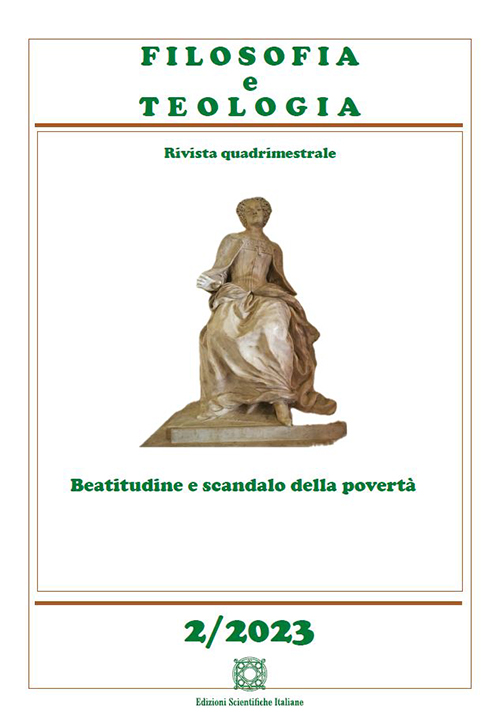Filosofia e Teologia XXXVII, 2 (2023), Beatitudine e scandalo della povertà, pp. 253-268
Nell’ermeneutica biblica di Armido Rizzi (1933-2020), e nella sua tematizzazione teologica, la povertà non rappresenta un capitolo specifico e secondario della rivelazione ebraico-cristiana, ma si presenta come il vero e proprio «luogo» rivelativo del Dio dell’alleanza. Il Dio dell’antica e della nuova alleanza non si manifesta all’essere umano quale Bene-oggetto che appaga la sua fame di felicità, ma quale Soggetto personale che, donando all’uomo fragile e vulnerabile i beni della terra, lo chiama a operare la giustizia a favore dei miseri della storia umana. Rizzi propone una teologia dell’alterità alternativa alla teologia del desiderio di Dio e alla teologia dialettica, nella misura in cui l’obbedienza della fede non allontana l’uomo dell’alleanza dal mondo alienato, ma lo rinvia ad esso per avviare la sua liberazione.
Parole Chiave: Povertà-Bibbia-Alleanza-Agape-Responsabilit
The way Armido Rizzi (1933-2020) reads the Word of God and underscores some fundamental theological themes, poverty does not only represent some specific corollary within the Jewish-Christian Scriptures and the subsequent understanding of revelation. It constitutes the true and proper locus theologicus of the God of the covenant as much as it illustrates the human condition. The God of the old and new covenant is not some endless or infinite Object meant to satisfy some human appetite for happiness; according to biblical revelation, believers welcome the God-Self as Subject and Person. By showering the goods of the earth on a fragile and vulnerable humanity, God calls all individuals within human history to work for justice and on behalf of the poor. Rizzi thus proposes his own understanding of creaturely otherness which he substitutes for the traditional theology of (a) the desire for God and (b) the framework at the basis of dialectical theolog
Keywords: Poverty-Bible-Covenant-Agape-Responsibility

